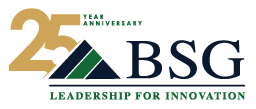
There's a lot written about the entrepreneur, entrepreneurship, and what ingredients make for success over failure in the industry of business venturing. Much of it is pretty shallow, pop psych fodder, meant to be read in a short trip to the commode, and disposed of similarly.
Books like Malcolm Gladwell's Outliers takes a much more thoughtful approach, one of myth-busting versus myth-making.
Another similarly thoughtful deconstruction of entrepreneurship was brought to my attention via Babson College's new president, Len Schlesinger, and his efforts to better match entrepreneurship's leading institution for higher education and its curriculum with a more effective toolbox for start-up success [full disclosure, Babson is my MBA alma mater].
Dr. Saras Sarasvathy, Professor at the Darden Graduate School of Business, is the author of this piece, written back in the dark corners of the 2001 post-Bubble recession, when entrepreneurship was the worst nightmare of those smart enough to avoid its allure while clinging to safety in their day jobs. The full piece can be found here.
As a foundation for the suppositions Sarasvathy makes in her article, she interviewed 30 founders of U.S. companies ranging in size from $200M to $6.5B across the spectrum of industries. She also had them each tackle the same case study to see how each founder approached the problem-solving required. Her goal was to try to determine whether there was a common denominator in the way entrepreneurs thought, and if so, could it be distilled to several core nuggets of "teaching wisdom" to help aspiring entrepreneurs.
After Sarasvathy completed her interviews, she transcribed the tapes in search of a common set of principles each entrepreneur operated from in problem-solving. Sarasvathy strings the principles she identified together into what she terms "effectual reasoning" of the entrepreneur. Effectual reasoning is a different approach to problem solving than what is used in large corporations, or already successful and established enterprises. She refers to the mature company's approach to problem solving as the inverse, or predictive, "causal reasoning" -
Causal rationality begins with a pre-determined goal and a given set of means, and seeks to identify the optimal - fastest, cheapest, most efficient, etc. - alternative to achieve the given goal.
However, effectual reasoning takes a very different approach, and the metaphor Sarasvathy uses paints an evocative image of the difference-
It does not begin with a specific goal. Instead, it begins with a given set of means and allows goals to emerge contingently over time from the varied imagination and diverse aspirations of the founders and the people they interact with. While causal thinkers are like great generals seeking to conquer fertile lands (Genghis Khan conquering two thirds of the known world), effectual thinkers are like explorers setting out on voyages into uncharted waters (Columbus discovering the new world).
Sarasvathy identified that there is no question that creativity is the cornerstone of effectual reasoning. Another metaphor she uses is that of cooking - a chef given a recipe, versus a chef given the ingredients. The chef given the recipe can go out and shop for what they need, compare cost versus quality versus convenience given the time allowed to prepare the meal, and create a very "causal" approach to the preparation. However, the chef given the ingredients must use his or her creativity and invent a dish out of a combination of what raw materials they were given, and the background and experience they have had in cooking across their career. Sarasvathy refers to this creative chef as having three categories of means:
1. Who they are - their traits, tastes and abilities
2. What they know - their education, training, expertise, and experience; and
3. Whom they know - their social and professional networks.
From these means, they start to cook up their idea, be it a product, service or invention.
One of the big initial differences between causal and effectual reasoning is that causal reasoning demands a rigorous analysis before any test-marketing of a product begins. MBA curricula herald that a best practice for starting a business is extensive market research before any products are actually offered up for public consumption. Conversely, effectual reasoning relies on very early market and customer feedback to guide product development. This interaction with the actual market and its users is a very iterative process. Using this approach, at some point a clear path evolves, and one or more achievable goals (new products, services etc. that the customer likes) make themselves apparent.
At a deeper layer of analysis, Sarasvathy identifies three underlying principles at work in the process of effectual reasoning and how it is distinguished from the causal reasoning approach:
1. While causal reasoning focuses on expected return, effectual reasoning emphasizes affordable loss. The key way to do this is to try to sell the product before you've even made it. See if you can get someone to buy something that doesn't exist yet. "I will have "x" available in the near future, will you buy it?" There is no sunk cost of manufacturing or development; a simple conditional close is used on a prospective customer. If they say no, there is very little lost. However, there is a lot gained regarding information, and perhaps a different product or service is articulated by the customer that they would buy.
2. While causal reasoning depends upon competitive analyses, effectual reasoning is built upon strategic partnerships. Effectual reasoning dictates that once you find something a customer will buy, you then identify a few key players in that market, and establish deep strategic partnerships with them. Make them premier or "flagship" customers, and dig into their further needs while selling them your first product to help refine, expand, and augment the value of your existing and future offerings.
3. While causal reasoning urges the exploitation of pre-existing knowledge and prediction, effectual reasoning stresses the leveraging of contingencies. Sarasvathy puts it best, referring to it as "the ability to turn the unexpected into the profitable." One of the entrepreneurs she interviewed phrased it this way - "I always live by the motto of Ready-fire-aim. I think if you spend too much time doing ready, aim-aim-aim-aim, you're never gonna see all the good things that would happen if you actually start doing it and then aim. And find out where your target is." It is similar to an old artillery approach to hitting a target. You would take your first shot, and then adjust the canon accordingly. Causal reasoning on the other hand, tends to focus on the avoidance of surprises as much as possible.
Sarasvathy goes on to distill further the differences in the logic that underpins causal and effectual reasoning -
Causal reasoning is based on the logic, To the extent that we can predict the future, we can control it. Effectual reasoning, however, is based on the logic, To the extent that we can control the future, we do not need to predict it.
Sarasvathy gives several examples of how causal versus effectual reasoning might play out in different scenarios. However, entrepreneurs all preferred to be in markets that were not predictable. In unpredictable markets, the entrepreneur can shape the outcome rather than a predictable market where vast resources would be required to accurately render the predictive analytics required to succeed and win. Business schools often teach the following mantra for sales: you should sell either new products to existing markets, or existing products to new markets, but never sell new products to new markets. For entrepreneurs however, effectual reasoning specifically targets new products for new markets.
Sarasvathy wraps up her research and results, concluding -
Entrepreneurs are entrepreneurial, as differentiated from managerial or strategic, because they think effectually; they believe in a yet-to-be-made future that can substantially be shaped by human action; and they realize that to the extent that this human action can control the future, they need not expend energies trying to predict it. In fact, to the extent that the future is shaped by human action, it is not much use trying to predict it - it is much more useful to understand and work with the people who are engaged in the decisions and actions that bring it into existence.
Also in her paper and of particular interest to our firm as executive recruiters, Sarasvathy makes the point that entrepreneurs - whether the founders of a company, or those who join start-ups early in their existence - need to feel emotional ownership in the goals and objectives of the start-up company and its mission, "...and can only be incentivized by the belief that the effects they create will embody their deepest passions and aspirations while enabling them to achieve their best potential." When we recruit executives for our clients, not only should they have the requisite resume experience with in the technology, medical devices, software, cleantech, or mobile, but we interview deeply against the less visible characteristics Sarasvathy refers to in her research. We have adopted the term "eductive reasoning" for what Sarasvathy refers to as pattern recognition where patterns are not immediately obvious (see here). When selecting an executive, resume is just the starting point, with thorough assessment of entrepreneurial DNA actually the more predictive of success in any given executive role in growth-stage companies.
###
Saras D. Sarasvathy is a member of the Strategy, Entrepreneurship and Ethics area and teaches courses in entrepreneurship and ethics in Darden's MBA program. In addition, she teaches in the doctoral program and the research seminar on Markets in Human Hope. In 2007, Saras was named one of the top 18 entrepreneurship professors by Fortune Small Business Magazine.
Saras is a leading scholar on the cognitive basis for high-performance entrepreneurship and is the author of Effectuation: Elements of Entrepreneurial Expertise (book overview). Effectuation is widely acclaimed as a rigorous framework for understanding the creation and growth of new organizations and markets. The research program based on effectuation involves over a dozen scholars from around the world whose published and working papers can be found at www.effectuation.org.





